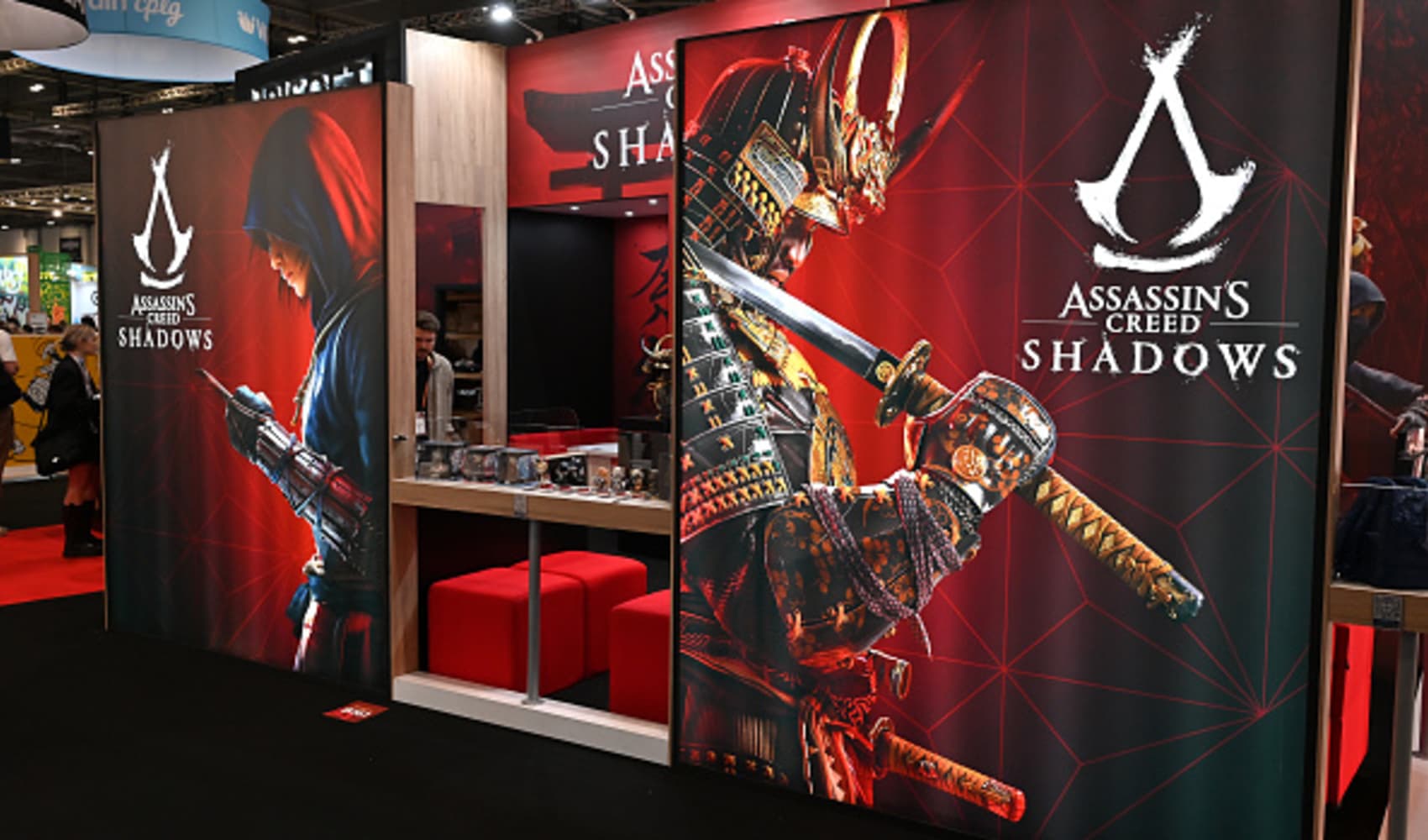Cramer Says Buy Take-Two! Is GTA Enough?
Cramer's Crystal Ball: Will Take-Two Interactive Conquer the Gaming World?
Decoding Cramer's Lightning Round: A Rapid-Fire Stock Analysis
Ever feel like the stock market moves faster than you can think? Enter Jim Cramer, the high-energy host of CNBC's "Mad Money," and his infamous Lightning Round. It's a whirlwind of buy, sell, and hold recommendations, delivered with Cramer's signature enthusiasm. But what does it all mean? Let's dissect one recent Lightning Round, focusing on Cramer's bullish take on Take-Two Interactive, the powerhouse behind Grand Theft Auto.
Take-Two Interactive: "Going Much Higher"?
Cramer didn't mince words: "Take-Two is going up and has been going up endlessly because Grand Theft Auto new edition comes out this year…Why are we constantly focused on Mag Seven when you have a Take-Two Interactive that I think is going much higher [buy, buy, buy!]." This is a strong endorsement, fueled by the impending release of a new Grand Theft Auto title. But is it justified? Let's delve deeper.
The Grand Theft Auto Hype Train: Is it Real?
Is it ever! Grand Theft Auto isn't just a game; it's a cultural phenomenon. New releases are met with unprecedented hype, driving massive sales and boosting Take-Two's stock. The anticipation for the next installment is immense. Think of it as the Super Bowl of gaming releases - everyone's watching, and everyone wants a piece of the action.
Beyond GTA: Take-Two's Broader Portfolio
While GTA is undoubtedly a cash cow, Take-Two Interactive isn't a one-trick pony. They own other valuable franchises like NBA 2K, Red Dead Redemption, and BioShock. This diverse portfolio provides a cushion against the cyclical nature of game development and ensures a steady stream of revenue. So, while GTA gets the headlines, the company's overall stability is built on a more solid foundation.
Cramer's Other Picks: A Quick Recap
The Lightning Round doesn't stop at Take-Two. Let's quickly examine Cramer's other recommendations:
Lululemon: A Cautious "Small Position"
Cramer suggests a "small position" in Lululemon (LULU). This implies a cautious optimism, perhaps acknowledging the brand's strength but also recognizing potential headwinds in the competitive athletic apparel market. It’s like saying, “Dip your toe in, but don’t dive headfirst just yet."
Rubrik: An Enthusiastic Endorsement
Simply "[buy, buy, buy!]" This strong statement suggests Cramer sees significant upside potential in Rubrik, likely based on their business model or recent performance. To get more detailed insights, more information about Rubrik is necessary.
Micron: A Lukewarm Assessment
Cramer calls Micron "just ok," citing unimpressive recent quarters and a lack of a clear catalyst for growth. This is a polite way of saying, "Hold off for now."
FirstEnergy: A Contrarian Buy
While admitting it's "not a great energy company," Cramer recommends buying FirstEnergy due to its relatively lower valuation. This suggests a value-oriented perspective, betting that the stock is undervalued compared to its peers. It's like finding a diamond in the rough.
Deciphering Cramer's Signals: What Does it All Mean?
Cramer's recommendations, while often delivered with flair, are ultimately based on his assessment of a company's fundamentals and market trends. Understanding his underlying reasoning is crucial for making informed investment decisions. Don't blindly follow his advice; do your own research!
Investing in Take-Two: Potential Risks and Rewards
The Potential Upside: A GTA-Fueled Rocket Ship
A successful launch of the next Grand Theft Auto could send Take-Two's stock soaring. The game's popularity is undeniable, and strong sales could translate into significant profits for the company. It's the "rocket ship" scenario that investors dream of.
The Potential Downside: Launch Delays and Competition
Game development is unpredictable. Delays are common, and a poorly received game could severely impact Take-Two's stock. Furthermore, the gaming industry is fiercely competitive. New games and platforms constantly vie for players' attention and dollars. This means other game companies could release a successful product. Diversification is key.
Beyond the Hype: Analyzing Take-Two's Fundamentals
Revenue Growth: Is it Sustainable?
Examine Take-Two's revenue growth trajectory. Is it solely reliant on GTA releases, or is the company diversifying its revenue streams? Sustainable growth is crucial for long-term success.
Profit Margins: Are They Healthy?
Assess Take-Two's profit margins. Are they consistently healthy, indicating efficient management and strong pricing power? A solid profit margin is a sign of a well-run company.
Debt Levels: Can They Manage It?
Evaluate Take-Two's debt levels. Can the company comfortably manage its debt obligations, or is it burdened by excessive leverage? High debt levels can be a red flag.
The Future of Gaming: Trends to Watch
Cloud Gaming: A Game Changer?
Cloud gaming platforms like Xbox Game Pass and PlayStation Now are changing how people access games. Will Take-Two adapt to this trend and capitalize on the potential of cloud gaming? It's a question of staying ahead of the curve.
Esports: A Growing Opportunity
Esports are booming in popularity, attracting massive audiences and generating significant revenue. Can Take-Two leverage its franchises to create successful esports leagues and tournaments? The potential is enormous.
Mobile Gaming: A Lucrative Market
Mobile gaming is the largest segment of the gaming market. Will Take-Two invest more heavily in mobile game development, or will it focus primarily on console and PC games? Ignoring mobile would be a missed opportunity.
Before You Invest: Due Diligence is Key
Cramer's recommendations can be a starting point, but thorough research is essential before investing in any stock. Review financial statements, analyze industry trends, and consider your own risk tolerance. Don't let hype cloud your judgment!
The Bottom Line: Is Take-Two a Buy?
Whether Take-Two is a good investment depends on your individual circumstances and investment goals. Cramer's bullish stance is primarily driven by the impending GTA release. However, a comprehensive assessment of the company's fundamentals, industry trends, and potential risks is crucial for making an informed decision. Remember, past performance is no guarantee of future results.
Conclusion: Key Takeaways from Cramer's Lightning Round
Cramer's Lightning Round offers a quick snapshot of his current market views. His enthusiasm for Take-Two Interactive highlights the potential of the upcoming Grand Theft Auto release. However, remember to do your own research before making any investment decisions. Consider the risks, analyze the fundamentals, and stay informed about industry trends. And don't forget about the other stocks mentioned: Lululemon, Rubrik, Micron, and FirstEnergy - each deserving of their own deeper dives before committing your capital.
Frequently Asked Questions
- Is Jim Cramer always right about his stock picks?
No, no one is always right about stock picks. Cramer's recommendations should be considered as one source of information among many, and you should always conduct your own thorough research. - How much of my portfolio should I allocate to a single stock like Take-Two Interactive?
That depends on your individual risk tolerance and investment goals. Financial advisors typically recommend diversifying your portfolio across different asset classes and sectors to minimize risk. - What are the key risks associated with investing in Take-Two Interactive?
Key risks include potential delays in game releases, competition from other gaming companies, and the cyclical nature of the gaming industry. - Where can I find more information about Take-Two Interactive's financial performance?
You can find information on Take-Two Interactive's investor relations website, as well as on financial news websites like Yahoo Finance and Bloomberg. - What does it mean to "do your own research" before investing?
Doing your own research means thoroughly investigating a company before investing, including reviewing its financial statements, understanding its business model, and analyzing industry trends. Don't rely solely on the opinions of others.

